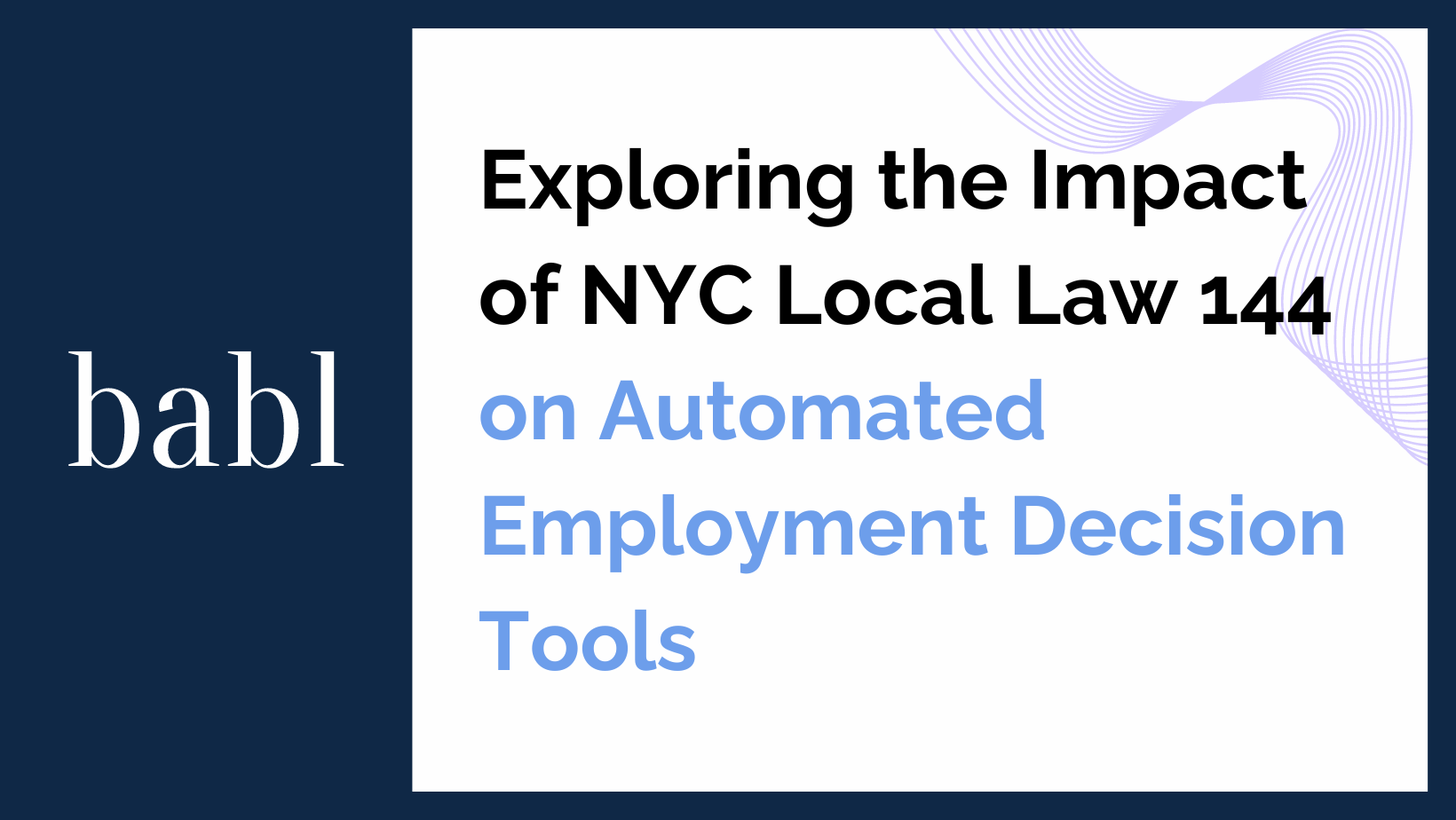Exploring the Impact of NYC Local Law 144 on Automated Employment Decision Tools
As the enforcement of New York City Local Law 144, commonly known as the bias audit law, continues to shape the landscape of automated employment decision tools (AEDTs), industry leaders delve into the implications of this pioneering legislation for employers both within and outside of New York City. Introduced on July 5, 2023, Local Law 144 mandates annual, independent, impartial bias audits of AEDTs used in employment decision-making processes within New York City. The law, the first of its kind, has garnered attention for its extraterritorial reach, impacting employers worldwide utilizing AEDTs for hiring and promotion processes in the city.
According to Local Law 144, describes an AEDT as any computational process derived from machine learning, statistical modeling, data analytics, or artificial intelligence. These tools issue simplified outputs such as scores, classifications, or recommendations, significantly influencing or replacing discretionary decision-making processes in employment contexts. The law stipulates rigorous rules for enforcement, elucidated by the New York City Department of Consumer and Worker Protection (DCWP). These regulations encompass a wide range of criteria, including the designation of independent auditors and the assessment metrics utilized during bias audits.
Bias Audit
A crucial component of Local Law 144 is the requirement for bias audits, which evaluate the outcomes of AEDTs by independent, impartial auditors. These auditors must scrutinize the impact of AEDTs on employment decisions, focusing on metrics specified by the DCWP to identify and mitigate potential biases. While initially targeting employers within New York City, the scope of Local Law 144 extends to entities outside the city with offices or operations within its jurisdiction. Employers with NYC-based offices utilizing AEDTs for employment decisions, even for remote positions, are subject to the law’s provisions.
Moreover, vendors of AEDTs may be compelled to initiate bias audits on behalf of their clients, irrespective of their geographical location. This broader interpretation of the law underscores its global impact, emphasizing the need for compliance among employers and AEDT vendors alike. Compliance with Local Law 144 is essential for upholding trust and transparency in employment practices. Non-compliance can result in substantial penalties and reputational damage, underscoring the importance of proactive measures to address bias in AEDTs.
Need Help?
Details can be overwhelming, so don’t hesitate to reach out to BABL AI. Their team of Audit Experts can provide valuable insights on NYC Local Law 144 and other global regulations.





